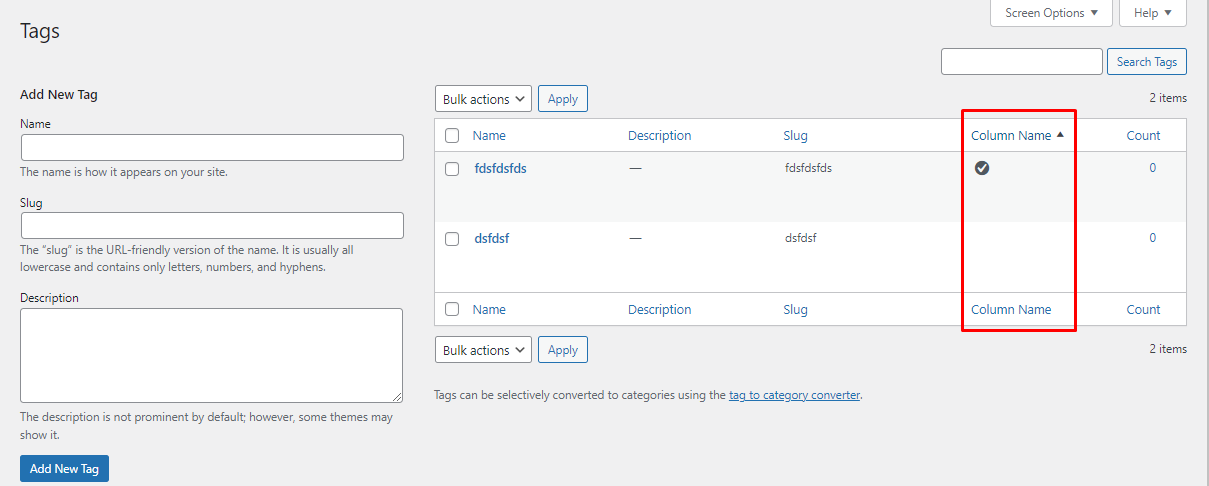I had a similar problem and managed to solve it. In my case I have a custom taxonomy, issue, which contains a required date picker custom field using the ACF PRO plugin—the field name is issue_date. I wanted to add the date column to my issue edit screen at wp-admin/edit-tags.php?taxonomy=issue and I wanted to allow admins to sort issues by date.
I tried hooking into pre_get_posts as @aifrim answered above, but that action is not part of the query that runs when WordPress loads taxonomy terms into the edit screen. Furthermore, taxonomy terms don't have any native metadata in the WordPress database so a meta_query will not work because my metadata is stored in another table altogether. A fun curveball.
Step 1: Create the new column itself, it will be empty initially
function create_date_column_for_issues($issue_columns) {
$issue_columns['date'] = 'Date';
return $issue_columns;
}
add_filter('manage_edit-issue_columns', 'create_date_column_for_issues');
Step 2: Populate the new column
function populate_date_column_for_issues($value, $column_name, $term_id) {
$issue = get_term($term_id, 'issue');
$date = DateTime::createFromFormat('Ymd', get_field('issue_date', $issue));
switch($column_name) {
case 'date':
$value = $date->format('Y/m/d');
break;
default:
break;
}
return $value;
}
add_filter('manage_issue_custom_column', 'populate_date_column_for_issues', 10, 3);
Step 3: Make the new column sortable
function register_date_column_for_issues_sortable($columns) {
$columns['date'] = 'issue_date';
return $columns;
}
add_filter('manage_edit-issue_sortable_columns', 'register_date_column_for_issues_sortable');
Step 4: Define the custom sorting (where the magic happens)
function sort_issues_by_date($pieces, $taxonomies, $args) {
global $pagenow;
if(!is_admin()) {
return $pieces;
}
if(is_admin() && $pagenow == 'edit-tags.php' && $taxonomies[0] == 'issue' && (!isset($_GET['orderby']) || $_GET['orderby'] == 'issue_date')) {
$pieces['join'] .= " INNER JOIN wp_options AS opt ON opt.option_name = concat('issue_',t.term_id,'_issue_date')";
$pieces['orderby'] = "ORDER BY opt.option_value";
$pieces['order'] = isset($_GET['order']) ? $_GET['order'] : "DESC";
}
return $pieces;
}
add_filter('terms_clauses', 'sort_issues_by_date', 10, 3);
My conditional statement in step 4 will also sort descending by issue_date as the default sorting when there is no other sorting criteria set.
I hope this helps someone else looking to make a better admin experience!

